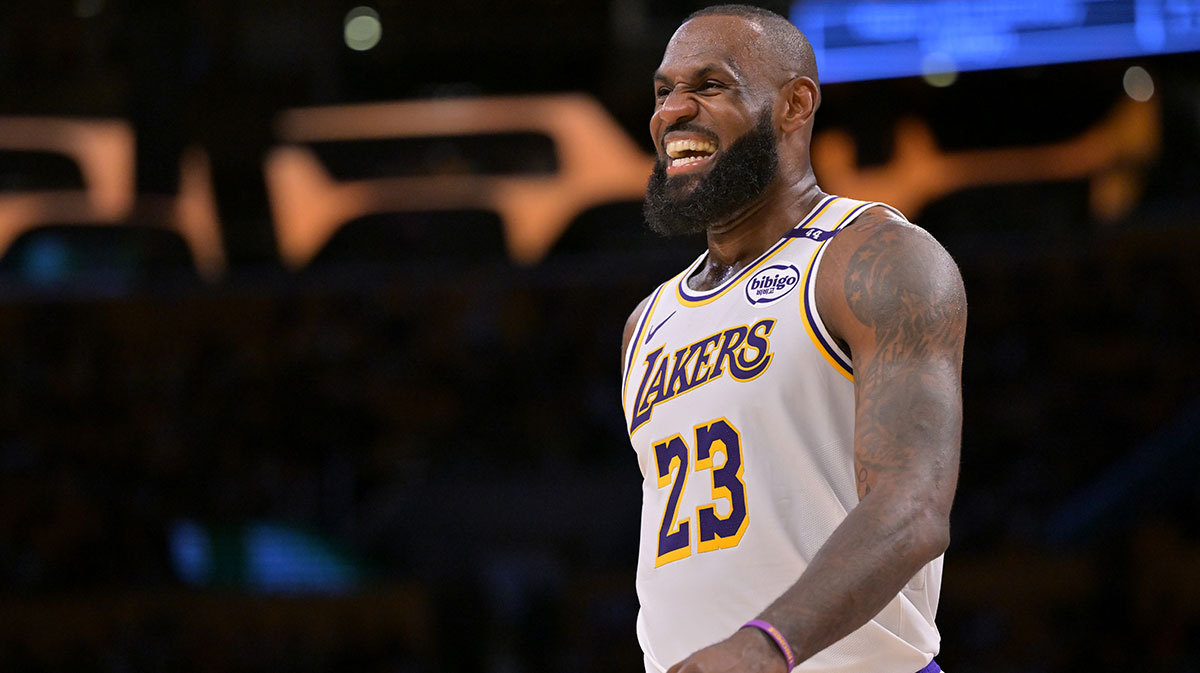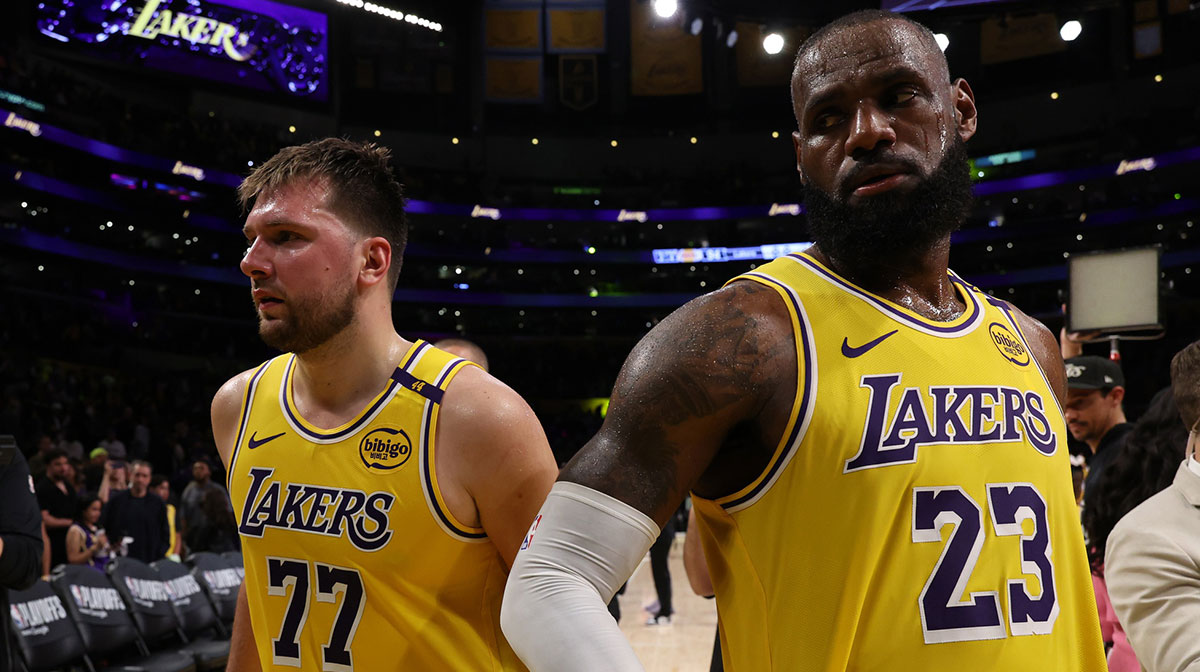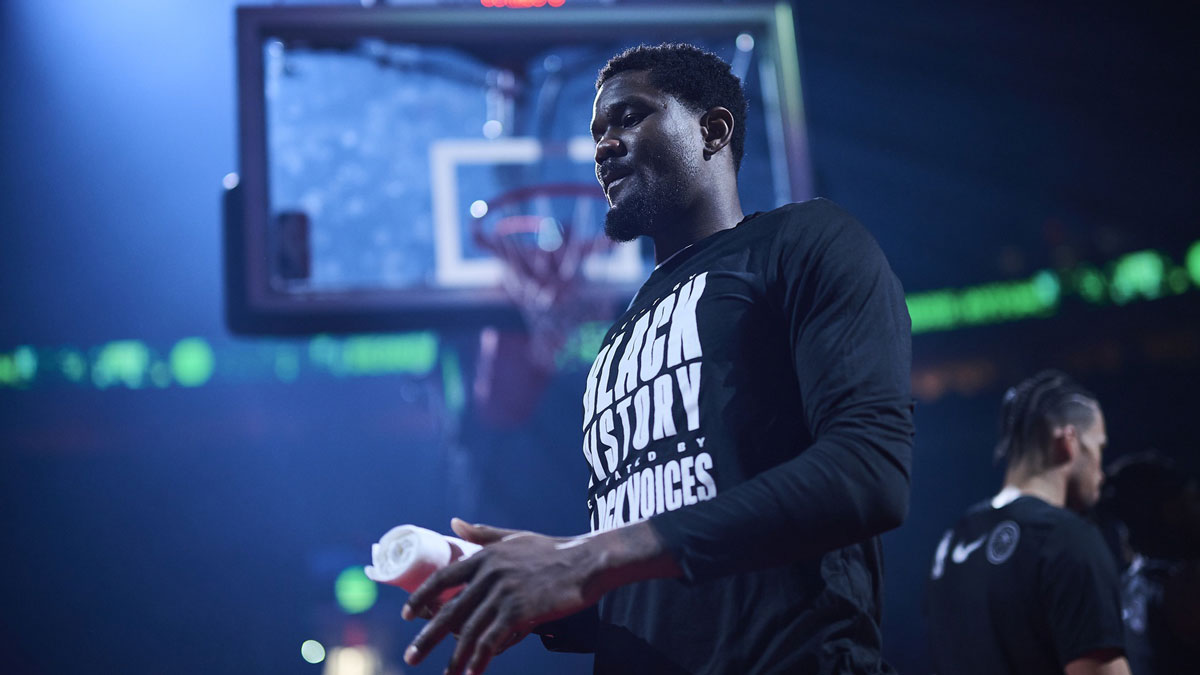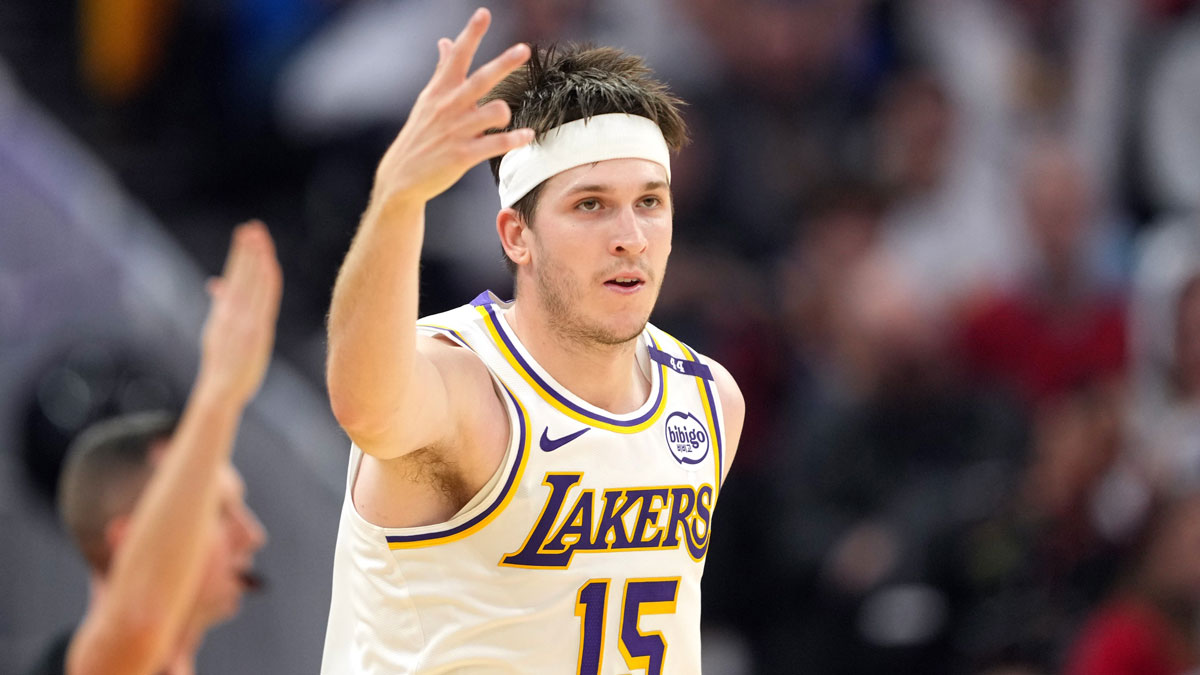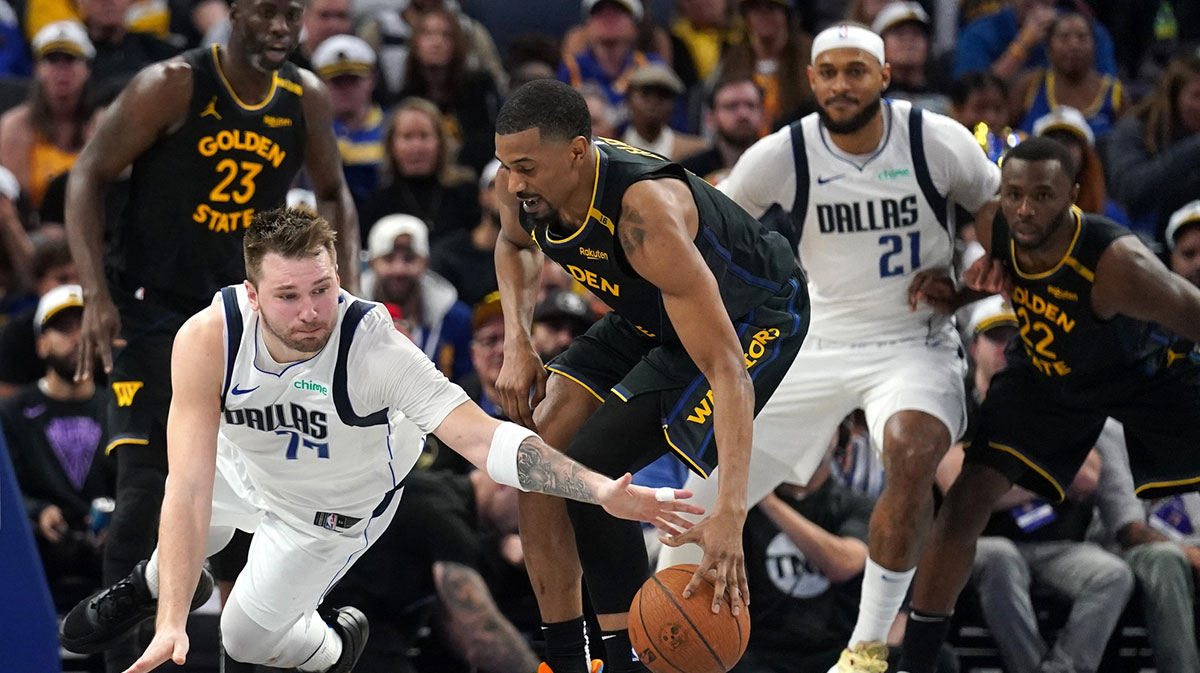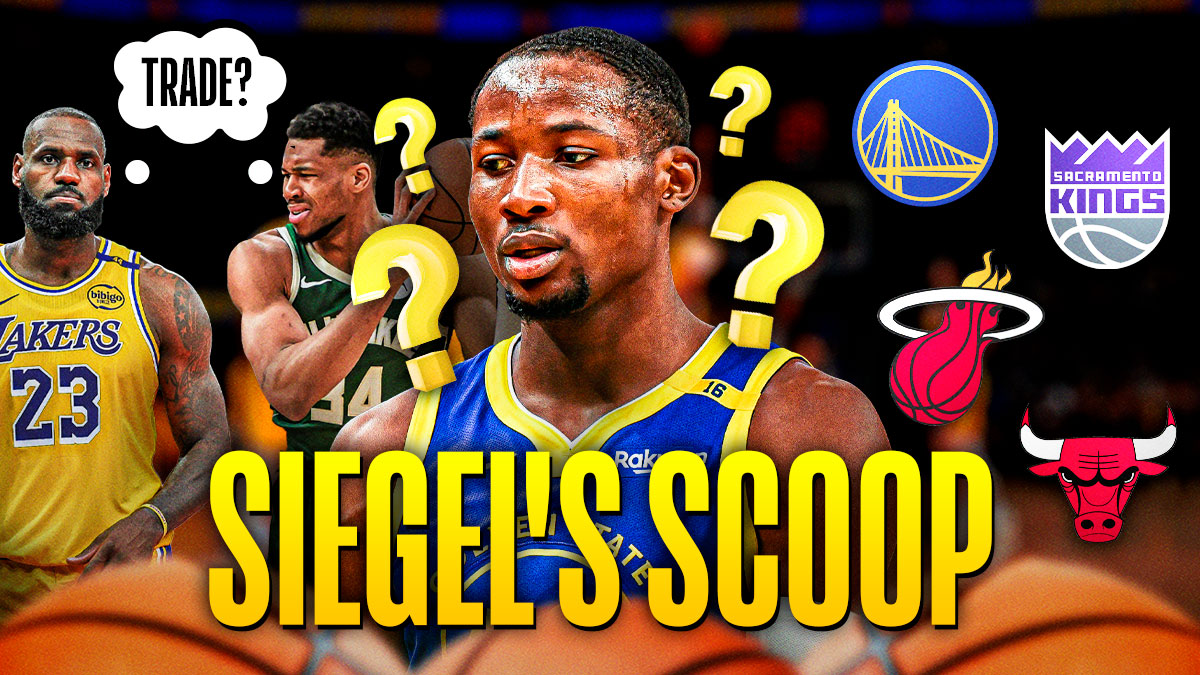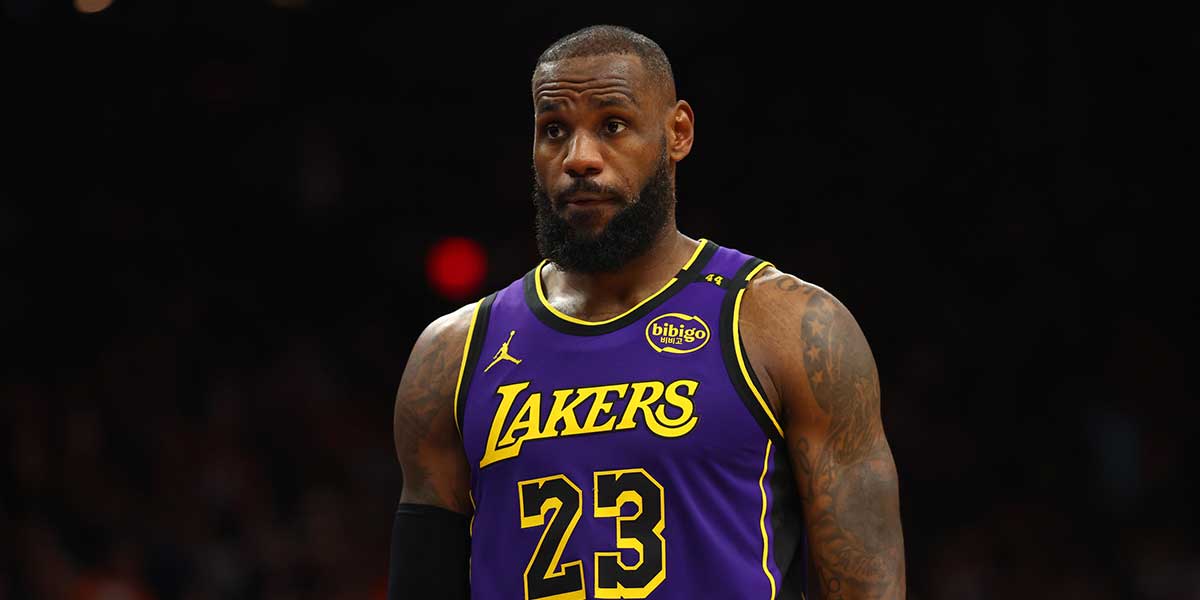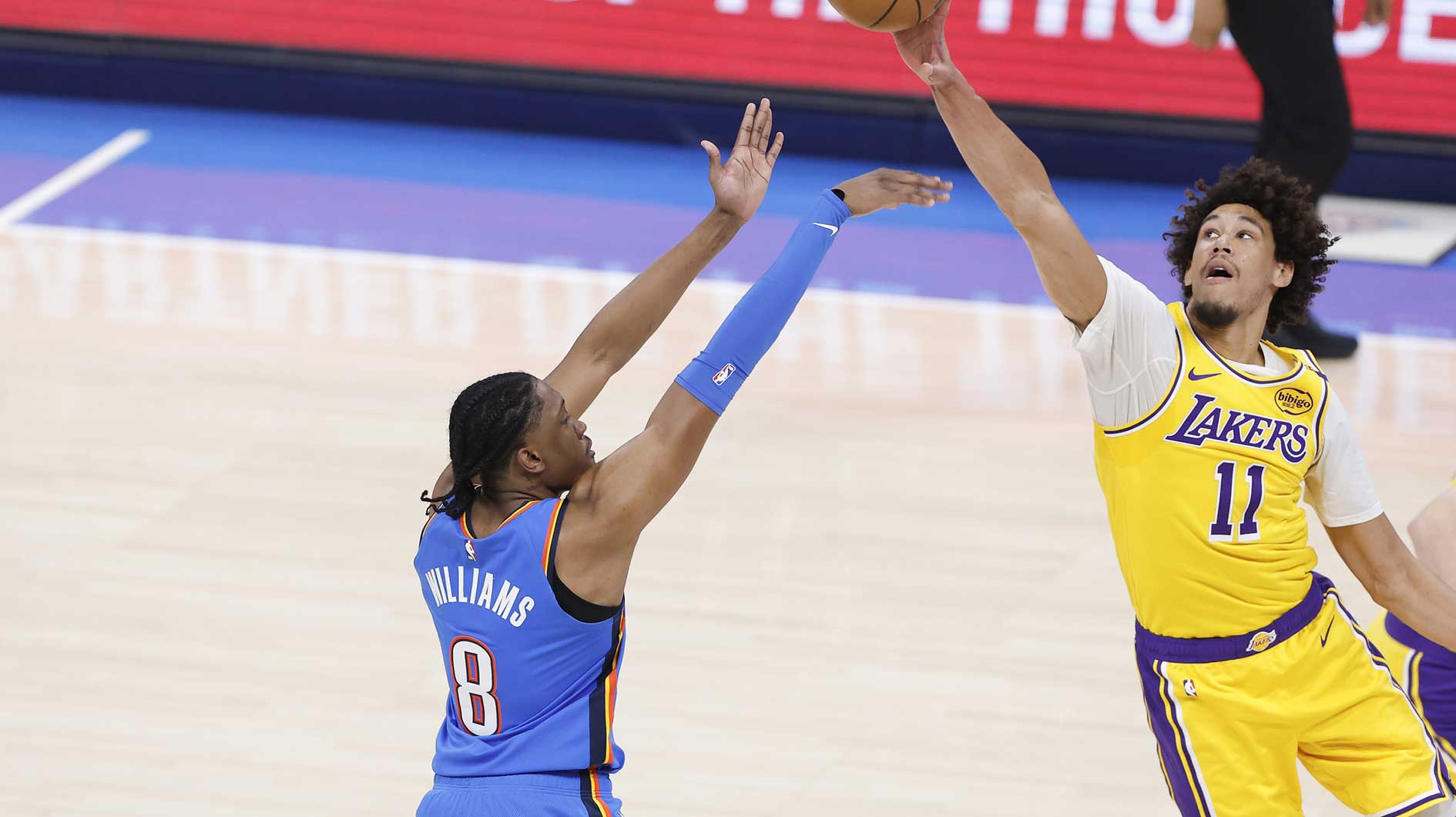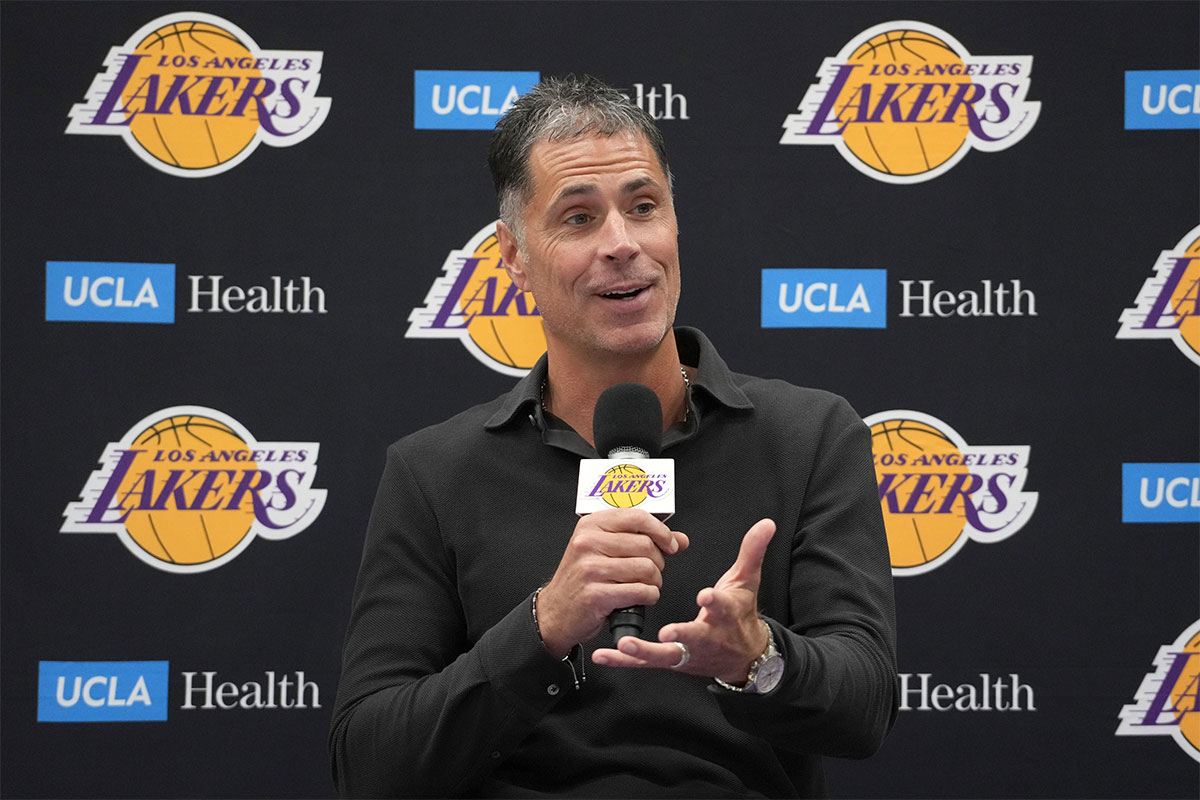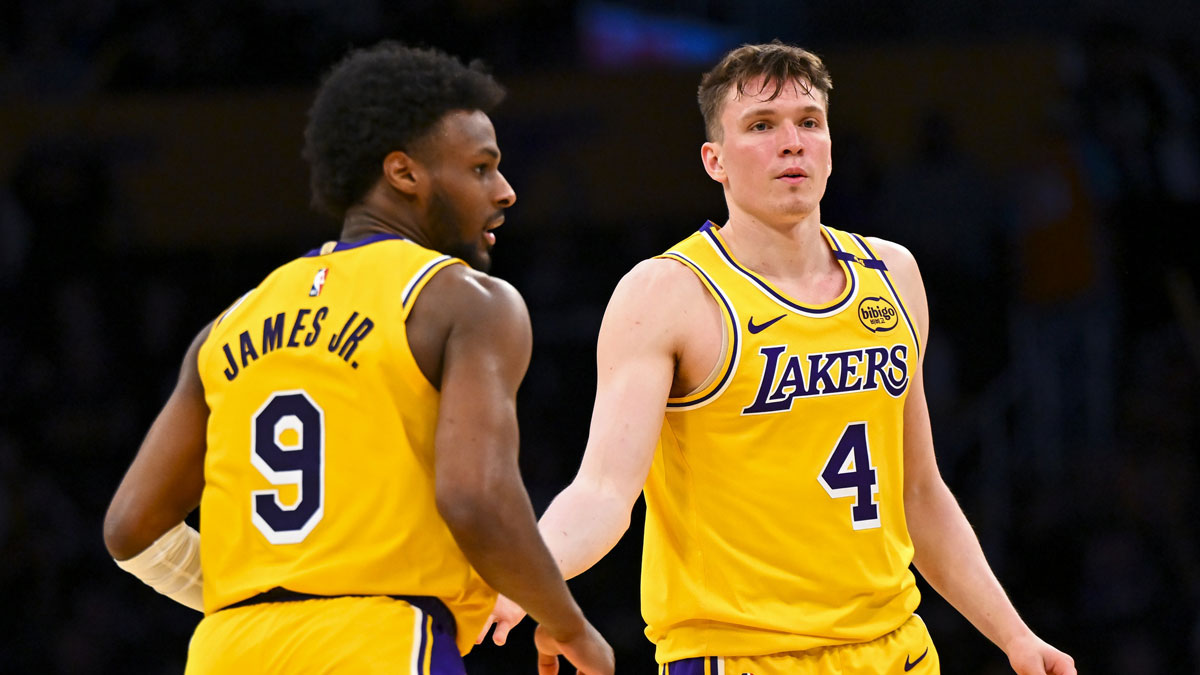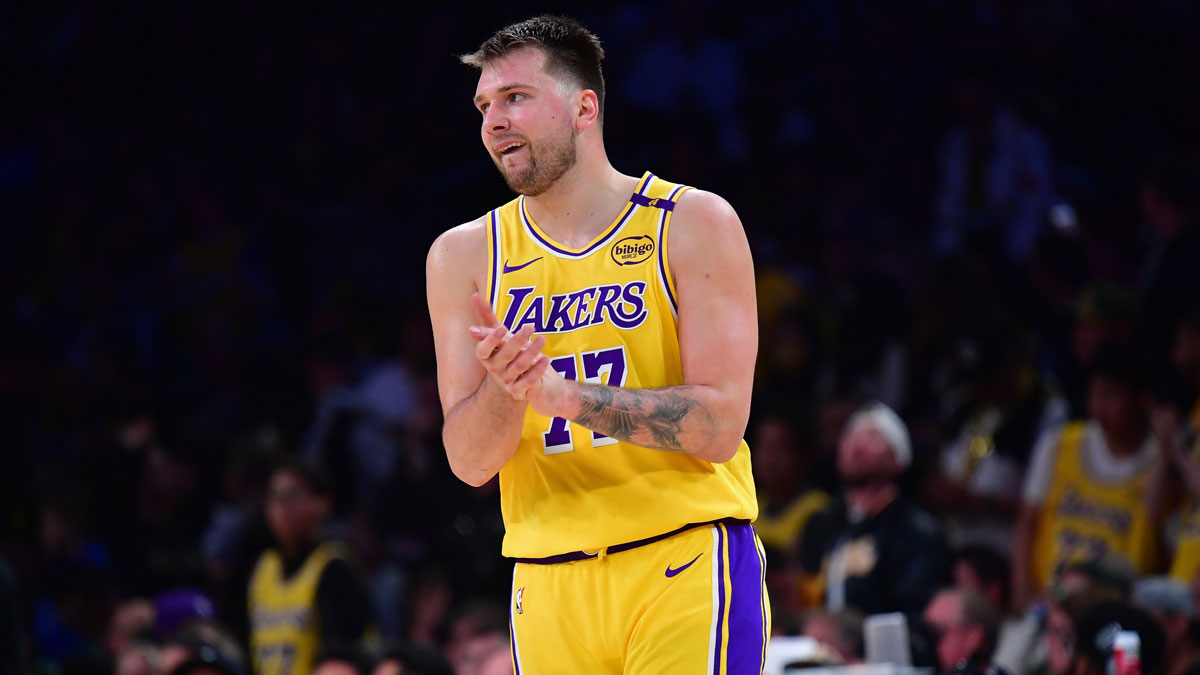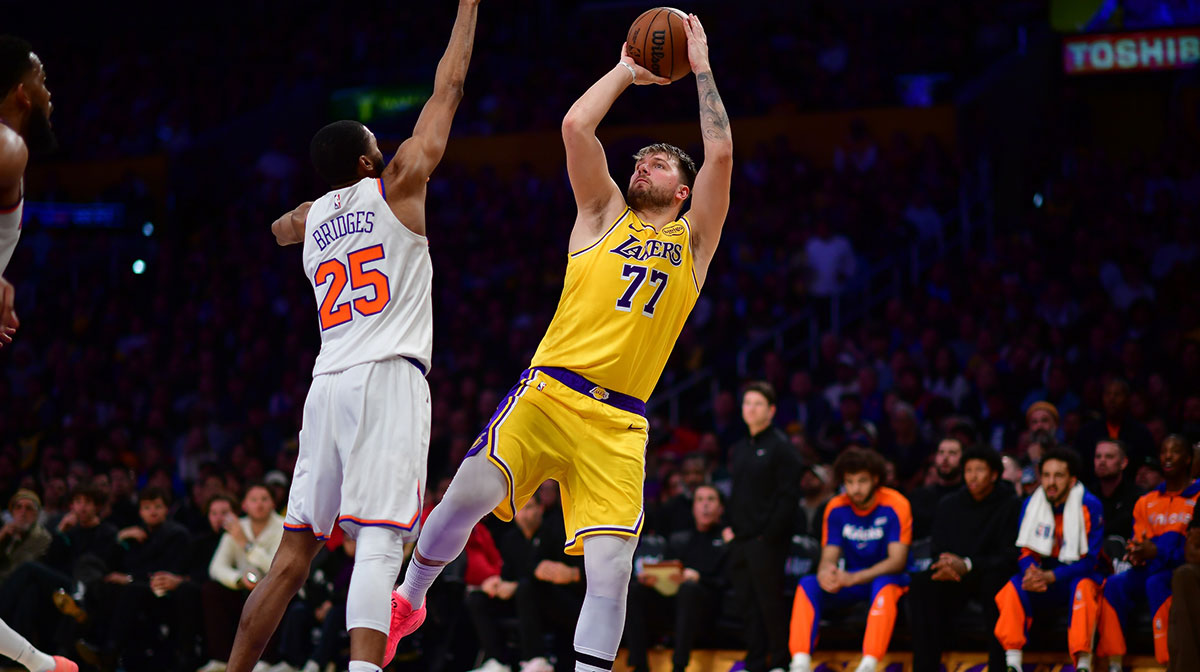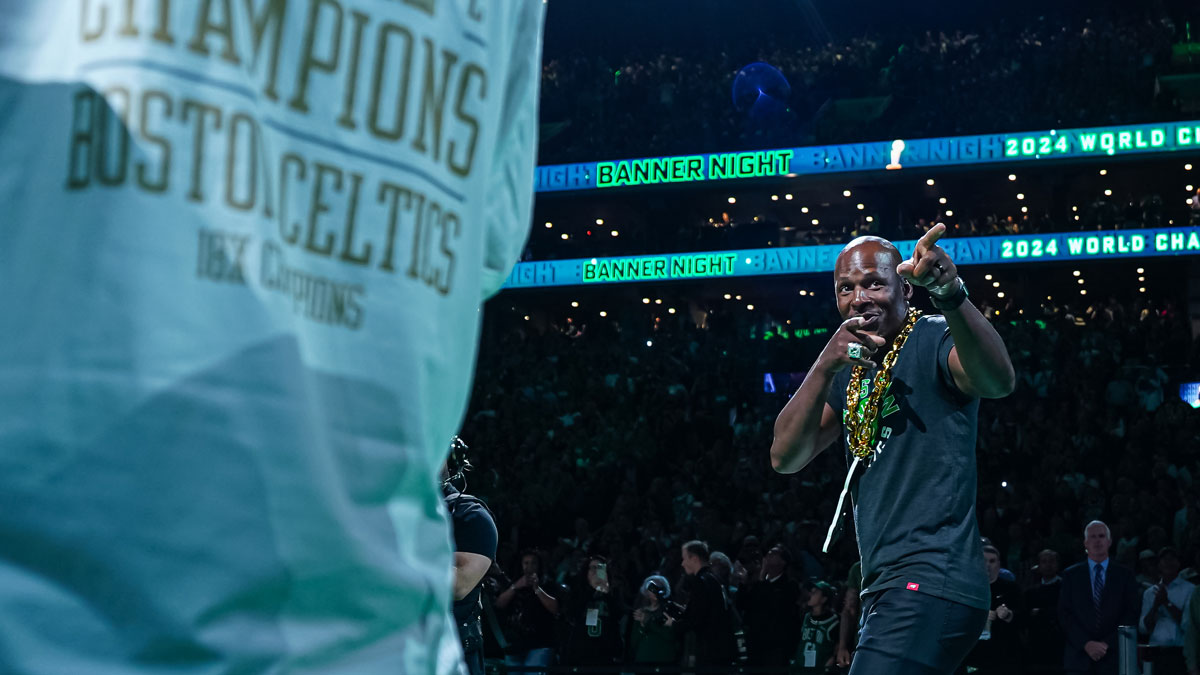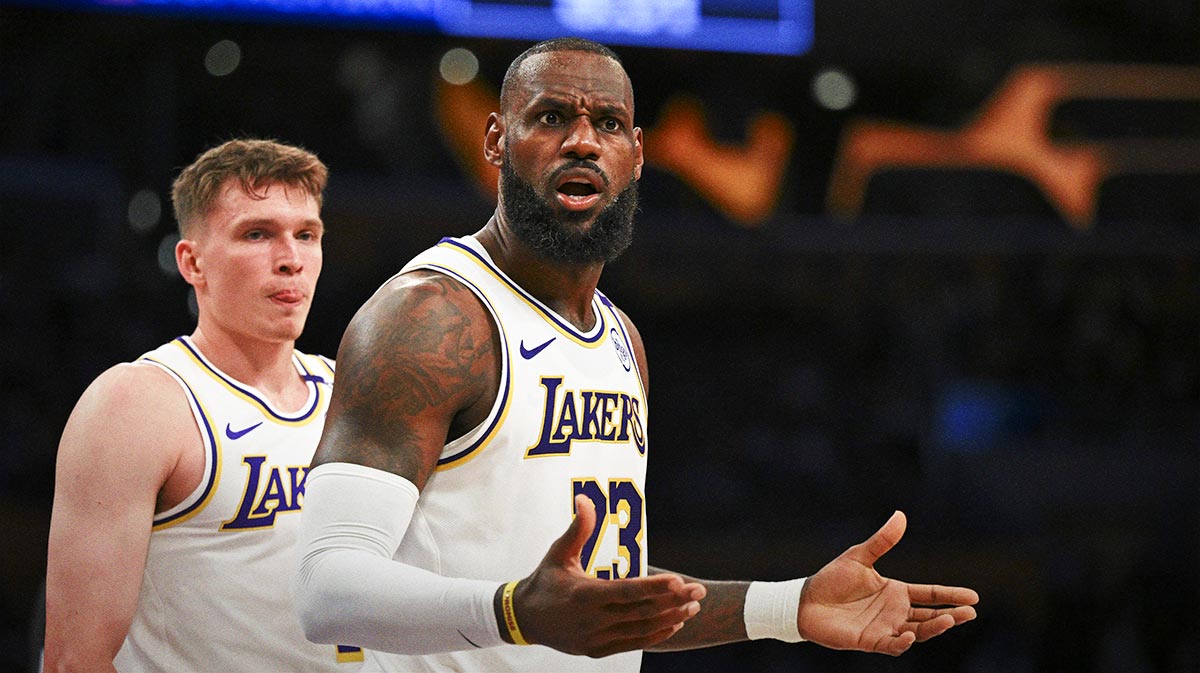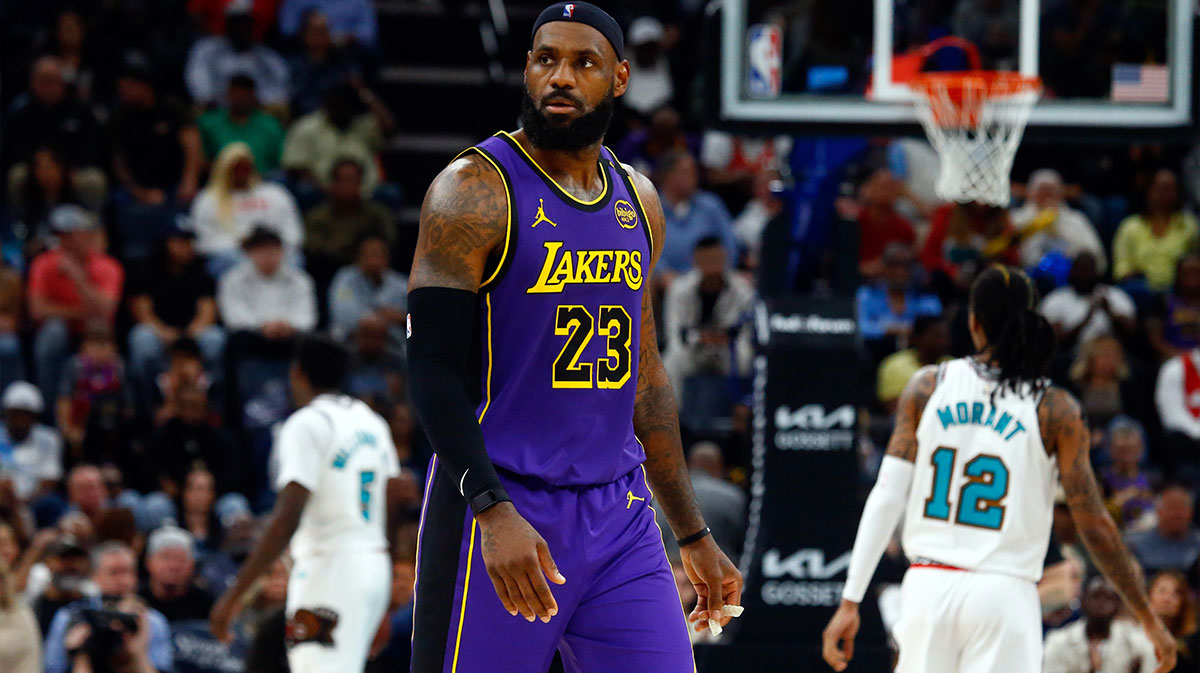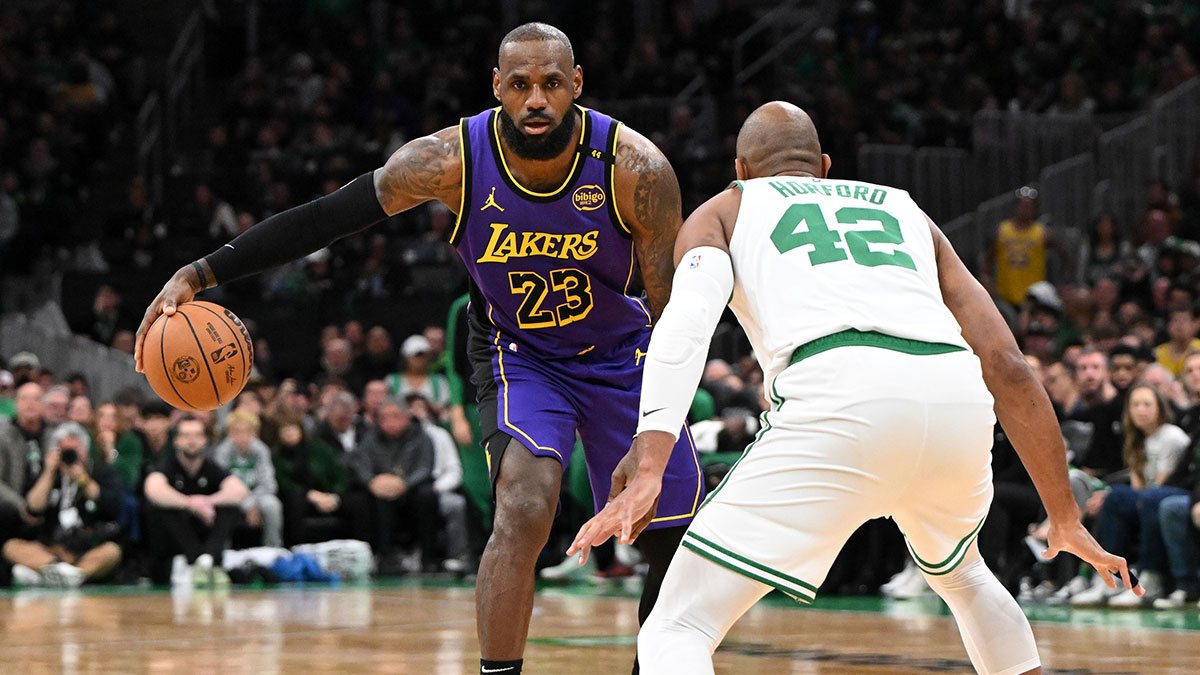The Los Angeles Lakers are a historic NBA franchise with 16 championship banners hanging in the rafters at the Staples Center and with 11 numbers retired. History, success, and excellence are synonymous with the Lakers.
So many iconic players have come through the Lakers organization like Jerry West, Elgin Baylor, Magic Johnson, Kareem Abdul-Jabbar, Shaquille O'Neal, and Kobe Bryant to current stars in LeBron James and Anthony Davis. Iconic coaches have also left their mark on the Lakers franchise like Pat Riley and Phil Jackson, helping build and establish a winning tradition.
Few people have been able to share and participate in the Lakers' success with all these iconic players and coaches throughout multiple eras of prosperity than former Lakers head athletic trainer, Gary Vitti.
Vitti recently spoke with ClutchPoints about his time with the Lakers and his book, 32 Years of Titles and Tears From The Best Seat in the House, which details his extensive experience with one of the most storied franchises in all of professional sports.
Ryan Ward: What motivated you to write this book?
Gary Vitti: The book is a series of life lessons that I learned from the great champions that I worked with. So the book is really not about me, it's about them and what I learned from them. I would kind of pass those lessons down to my children – I have two daughters – and they started calling them GV Gems. I never kept a journal. I wish I did, and I do say in the book that everyone's life is a book, and everyone should keep a journal. You don't have to write in the journal every day. That's a lot of pressure, but when significant things happen in your life, it would be good to write them down because as you get older, I also say this in the book, I have forgotten more than I remember.
So what I started doing – rather than keeping a journal – because I never really had time, I would just jot a few words, maybe two or three words, about an event on a little piece of a scratch paper and throw them in a folder thinking that one day I would organize all these thoughts. And that's exactly what happened because they were just a bunch of pieces of paper not in any specific order or meaning.
What I learned from writing the book was that it kind of gave my life meaning. That might be hard for you to understand when I first say that, but when I say this to you, I have often been introduced by one person to another. ‘Hey, this is Gary Vitti. He's the head athletic trainer for the Lakers.' I don't know how other people are introduced, but most of the time, they're not introduced by what they do, right? You don't say, ‘Hey, this is my friend he works in a bank' or ‘this is my friend who's a postman.' So why do people introduce me that way? Because that's not who I am. It's what I did for a living. Was my life really meaningful? Is taking care of these guys that play basketball in the scope of life, is that really meaningful?
This book kind of gave my life meaning because besides taking care of a bunch of great athletes, I actually learned some lessons and was able to put them down on paper into a book form and pass them on to whoever feels like they need to read about life's lessons. The book is doing pretty well. I've gotten all five-star reviews, so the reason why I wrote the book was to give my life meaning.
What do you think was the most important part of your book?
GV: The title of the book is, 32 of Titles and Tears From the Best Seat in the House, but then the subtitle is what I learned about happiness, greatness, and leadership. When I say those three things, I put happiness first. I think that's the most important thing in that book. Happiness is really a serious problem in our society, especially in the workplace. It's a choice.
In the book, I describe people like you and me, our adult lives started when we went off to college and we start saying things to ourselves like, ‘I'm going to be happy once I graduate from college. I'm in school. I'm studying. I'm taking tests. I don't have any money, but once I get out of school, then I'll be happy.' And you are. You graduate, and you're happy for a short period of time because now you need a job. So now you say to yourself, ‘I finished school, but I got to get a job. Just a foot in the door, and once I get that, I'll be happy.' And you do. You get the job. Then you need a promotion. Then you need a new car because you've been driving around in that clunker since college. Then you need to find somebody to share your life with, and you do, and you're happy. Now you get married. Now you got to get a house. It doesn't have to be a big house. Just a little something you can call your own. You get the house, and you're happy, but now you start having children, so now you need a bigger house. The point is that there will always, always be something else that you're chasing, and you're never really happy because you're chasing these things to find happiness. It's good to chase things, and it's good to want more, but your happiness should not rely on it because if it does, you'll never really totally be happy. You'll just have short bursts of happiness once you've acquired whatever it is you're chasing at that time.
Happiness should rely on being grateful for what you already have. Not what you're acquiring. It's about what you already have. Whatever that is because I guarantee you there are people in the world that have much less than you do. So no matter how little you think you have, if you have your health, you have everything. Being grateful for what you have actually begins with your health and that of your loved ones. As long as you have that, you've never been better in your life. In the book I go on to say the words, ‘I've never been better in my life!'
If somebody asks you how you are as you walk down the street, ‘Hey, how you doing?' What is that? Is that really a question, or is it just a greeting? Does that person actually care how you're doing, or is that just something you say to somebody as you're walking by? If you respond to that person, ‘I've never been better in my life!' You would be really surprised at the reactions that you will get from people. Some people will say, ‘Yeah, right!' Because they think you're being facetious because their life is probably miserable, so they think everyone's life is miserable. Other people will say, ‘That's fantastic! You just made my day.' Then there's everything in between. Point is if you do this at work especially, where you are surrounded with people every day that you know, you can actually change the energy of a workplace with your attitude, and that's probably the most important thing in the book because being in the healthcare field, I saw people lose their health. Once they did, all the other stuff in their life that they thought was important became inconsequential.
So the secret to happiness is being grateful for what you have, starting with your health and that of your loved ones. If you have that, you've never been better in your life.
Vitti describes the experience of Lakers icon Magic Johnson contracting HIV and the impact it had on his life moving forward.
GV: It comes out, especially in the chapter about Magic testing positive for HIV. That happened in 1991. We had just lost to the Bulls in '91. To that point, when I found out that Magic tested positive for HIV, everything in my life changed. I had bought into the American sports creed that there's winning and there's misery and there's nothing else in between. Whatever it is you're chasing in life, the things that make you happy, for us, and for me, in that group, we were chasing championships.
The years we won were euphoric. The years that we didn't were absolutely miserable because when you lose in sports, especially professional sports, you feel like a loser. It’s because sports is set up that way. Sports are not set up for success. They're set up for failure. There's only one team that can win the last game. Everybody else goes home a loser. And when you buy into that concept, you live a yo-yo life of the thrill of victory and the agony of defeat. I never scored a point, got a rebound or an assist, but I went to the Finals 12 times, and we won it eight in 32 years, so I experienced that thrill of victory and agony of defeat more than most.
We really thought that Magic was going to die and that’s when I realized that I was never really happy. I had bouts of happiness, but I was never really happy. I then I realized that when I saw people lose their health, how important it became to them. I also realized I had good health, and everyone I loved had good health.
So, chasing these rings was a good thing to do, but having your happiness rely on that was not good mentally or emotionally. And that's when I made a mind shift and started changing the atmosphere of the training room and the locker room.
Magic's diagnosis was a real turning point for you?
GV: That's correct. Yeah.
What's your fondest memory of being the Lakers head athletic trainer?
GV: That's interesting question. I guess I would have to say winning the championship in 1985 against the Boston Celtics. When I came to the Lakers, even in my interview, they made me understand that there was one mission and one mission only, and it wasn't just to win an NBA championship. It was to beat the Boston Celtics to win the NBA championship.
You know what they say, ‘It's never better than the first time?' Well, that's a true statement because I had seven rings after that, and none of them compared with the euphoria of beating the Boston Celtics in 1985 after the franchise losing to them eight times, and we did it on their parquet floor in Boston.
That moment, the final buzzer went off and you knew it was over and you finally won with all the stress and everything you put into it for the season, the whole team, it sort of became this magnificent euphoric feeling of victory and happiness. I don't know if I've ever felt that before or since that moment.
Can you describe what a star player for the Lakers would go through physically during a championship season? Regular season, playoffs, and the NBA Finals. All those games.
GV: I don't know if you've gone to Vitti Report, but the last chapter is about load management. I write the evolution of sports science. I go back to like 3600 B.C. with Chinese emperors forcing their subjects to exercise because it made them more productive. I follow this with a chronology of sports science, and I finish it with load management. You can go to Vitti Report, which is a blog I started a few weeks ago.
It's changed from when I came into the league to what it is now. The load has changed because the game has changed. And what I mean by that, the speed of the game has changed and the strategy of the game has changed. There’s no more walking the ball up the floor. There's no more low-post offense where a big guy goes down into the post and takes the block…There's no mid-range game at all anymore. There's very little low-post game. It's either a layup or a three-point shot, and these guys are flying up and down the floor. So the load has changed. The dimensions of the floor are the same. The height of the basket is the same. The only thing that has changed is the speed and power of the game.
If you look at what I wrote in the book, I attribute the change to the analytics we have today. The analytics tell us how many times a player changes directions during a game. How far they run during the game. How fast they run during the game. We know all of that today because there's an eye in the sky. There are six cameras in every arena that recognize all 13 people on the floor, five players, each team, and the three officials. Those cameras shoot at a rate of 25 frames a second, so they know the number of accelerations and number of decelerations as well as trajectory. As a result, you can create an equation.
That equation is you take the average speed, and you multiply it by the distance that they ran, and you multiply that by their body weight, and that's the load that's on that player for that particular game. That number is important in of itself, but if you go one step further and take that number and divide it by the minutes that they played, you can get a second number that we call intensity. And if the load is going up, we want to see intensity go up with it. We want to see a direct linear relationship between the two. If the loads going up and the intensity is leveling off, then we have to ask ourselves why is that happening. Is it because you're guarding Stephen Curry or maybe you got in a fight with your girlfriend because there is a psychological load that is put into the equation through the use of what is called RPE scale. Rated Perception of Excursion.
So all these things go into an equation to end up with a number we called load. We follow this load for a seven-day period, and from the seven-day period to get an average load, which we're going to call the acute load. We then continue to follow the load for 28 days. We average that load which we’ll call the chronic load. It becomes a rolling number, so day 2 becomes day 1. Day 8 becomes day 7. Day 29 becomes day 28 and so on. On any given day you can compare the seven-day load to the 28-day load. If there's ever a day or a week where the acute load, the seven-day load, is greater than the chronic load, the 28-day load, you are going to get hurt.
It's complicated but it won't cost you anything to read the blog post. Just go to Vittireport.com and look at load management. I explain the whole thing. Now the interesting thing about it is that when I ran the permutations of the three variables that I first mentioned to you, which was the average speed and the distance and the bodyweight, we really found out to about 94% you can predict load simply by the distance the player ran. It makes a lot of sense because if you were a runner, what are the two objective, not subjective things that you can measure to know the load that was on you for that run? The simple answer is, how far did you go and how long did it take you? That's not subjective. That's 100% objective and that can be measured. So, even if you just looked at the distance ran you can pretty much tell what the load is on players today. Everything is measurable today, which we didn't have when I first came into the league.
All we had was our eyeballs, our experience and our intuition. Now all of that has been taken out of the job. The analytics has told us players run for about two to four minutes at a time, and they run at an average speed of three to four miles per hour. They can get up to as high as 14 miles per hour and as low as basically not moving. Just kind of walking around. And they run about two and a half miles during a game. There’s ten to twenty full-court transitions throughout the game. I mean, it's all measurable. So they know exactly what they're doing. Now the question is, can you make it meaningful or not.
When I first came into the league, it was a badge of honor, a badge of courage if you played 82 games. Nobody cares about that anymore. As much as I love [Gregg] Popovich, what he realized is that the only thing that mattered at the end of the season was who won the last game and how can I put my players in a position to win the last game. The answer to that was to rest them as much as he could and still keep his team in contention. You don't have to finish first but you have to win the last game. So he basically changed the landscape and the environment of how a coach would distribute the minutes throughout the season. Popovich would look at the schedule the first day and decide then who he was going to sit in March. That was always interesting to me because how do you know how that person is going to feel in March. Maybe that person feels great. Maybe you have another person on a team that's fatigued, and maybe he's the guy you should sit that game. That's what it has become today, but when he started this, it was more on experience and intuition.
Using load management can help you get in the top four spots in your conference with reduced risk of injury. You don't want to just limp into the playoffs. You want to get one through four, hopefully. So he was able to manage minutes because he had depth on his team. What happens if you don't have depth on your team? If you want rest guys you’re going to lose a lot of games that way, so the trick is how can I rest guys and still stay in contention. Still stay with the pack. Part of that is being loaded with talent on your team.
What would you say is the toughest aspect of being an NBA athletic trainer?
GV: The travel thing is killer but if you’re asking about the day to day grind, you can go to Vittireport.com. I wrote a thing called the Quadchotomy of the NBA Athletic Trainer. So, what that means is you get pulled in four different directions as an athletic trainer. You have your management, which is usually the general manager and ownership. They're the ones that put the team together for the coach to coach.
The head coach is then the second guy that pulls you in his direction. Now, if the coach and the general manager are on the same wavelength, that makes it a lot easier for the athletic trainer, but if they're not, that makes it extremely hard because the head coach may be pulling you in one direction and management is pulling you in another direction.
You’re being puled in two different directions because very often, GMs and coaches don't see eye-to-eye. The GM thinks that he put the team together, and he wants to see you play the game this way with this personnel. These are the guys I want you to play, and the coach is saying, ‘I don't think we can win that way. I think we have to play this way.' So then they're at odds with each other, and it's often said in the NBA that when a head coach comes, he wants to bring his own people with him. Well, that's okay for the assistant coaches, but what happens if the head coach brings his own athletic trainer. He brings his own strength and conditioning coach and other personnel. If you end up firing the head coach, which they all eventually get fired. Then you get stuck with all these other people that you wouldn't have hired in the first place, so general managers like to hire their own people and let the coach coach and let management manage. That can be a dichotomy.
Not always, but it can be. The GM is pulling you one way and the coach is pulling you another way. You're getting it in stereo on both ends.
The way I handled management and coaches was I'm your eyes and ears down there. You guys are on the second floor in your offices. You come down for practice for a couple of hours, and then you go back to where you came from. I'm embedded with the players. I see and hear everything, but it doesn't mean I'm going to come and tell you everything I've seen or heard. You're going to have to trust me that there is going to be times I'm going to tell you something and you're going to ask me who and I'm going to tell you that I'm not telling you that. I'm just telling you that something is going on down there and you don't need to know who yet, but I'm just letting you know in case it blows up. There are other times I'm going to come and tell you who, what, when, and where. And there are other times I'm not going to tell you anything. I'm just going to see if it is going to blow over on its own without you ever knowing. You’re just going to have to trust me that I know what to do and when to do it.' That's my deal with management and coaches.
Then with the players, I tell them, ‘Hey, this is what I just told management and coaches. But, I will tell you this as a player, that I will never lie to you but I will also never lie for you, so don't put me in a position where I have go up there and tell them something about you.'
If everybody just does the right thing and works together for the greater good of the team, then everything will be fine.
The last part of the Quadchotomy are the agents. When I first came into the league, I didn't know any agents. I met one, Magic Johnson's agent but I didn't really know him at the time. Before I retired, I talked to agents almost every day. If a guy got hurt, by the time I got him from the basketball court to the locker room, my cell phone was already ringing off the hook. They all had my cell phone on speed dial. So now you have agents pulling you in another direction and that is a minefield that an NBA athletic trainer has to navigate through. How do you work with all these different entities and make them all feel like you're listening to them. Letting them know what they're telling you is important and that you want to help them. It gets very, very complicated.
A key chapter in Vitti's book focuses on Lakers legend Kobe Bryant with an interesting description of the five-time NBA champion from his perspective.
GV: I wrote a chapter that was inspired by Kobe Bryant. The name of that chapter is. You Can Never Have Enough Talent But Talent Is The Most Overrated Thing In Life. I go on to say, that what if I told you Kobe Bryant was talented, but he wasn't that talented in the scope of the NBA. If you really look at Kobe, there's nothing special about him as an NBA player. He's a big human being. I don't know how big you are. I'm 5'9″. So in terms of me, he's big.
But in comparison to NBA players, he's not that big. He was fast, but he wasn't that fast. He was quick, but he wasn't that quick. He could jump a little bit but he wasn't a giant leaper. I'm mean, there was nothing special about him. But why does Kobe have five rings when more gifted players in the NBA have none? I go on to explain it in the book why that is. How did he do it? There are about five characteristics about him that separate him from everybody else, and that's how he became the best of the best.
Vitti also opened up about former Lakers star Pau Gasol and how the Lakers organization didn't treat the veteran forward as well as they should've during his time with the team.
GV: I say in the book that Pau Gasol was never treated well by the Lakers. He helped us to the Finals three times. He won it twice, and then they were ready to kick him to the curb with the trade that didn't go through, and now you've got to come back to a team that traded you. I mean, the trade was done, and all of a sudden [David] Stern pulled it back.

